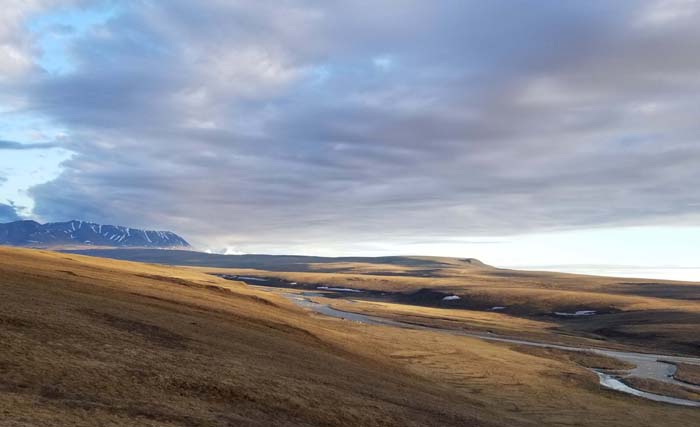El Senado confirmó hoy a Deb Haaland para liderar el Departamento del Interior. Haaland es la primera indígena en ser miembro del gabinete federal.

The Arctic National Wildlife Refuge is one of America's last truly wild places and must be preserved. | Photo by Loren Blackford
Public lands and waters should never be threatened by oil and gas drilling. We work to protect these special places from legislative assaults and federal regulatory rollbacks that threaten to open them up to exploitation by the fossil fuel industry.
Press Releases
The Senate today confirmed Deb Haaland to lead the Department of the Interior. Haaland is the first Native American to hold a cabinet position.
Today Rep. Grijalva introduced the Save Oak Flat Act to permanently protect the Oak Flat area of Tonto National Forest from destructive mining proposals.
The Biden administration has withdrawn a Final Environmental Impact Statement and decision that would facilitate the transfer of ownership of Oak Flat, a sacred land to at least a dozen Indigenous Tribes, to a mining company with ties to the destruction of an Aboriginal site in Australia. The move follows years of opposition from Apache-Stronghold, the San Carlos Apache Tribe, the Inter Tribal Association of Arizona, and other Tribal entities, religious leaders, locals, and environmental groups.
Today, the US House of Representatives passed the Protecting America’s Wilderness and Public Lands Act in a xx-xx vote— a package of conservation bills that will collectively protect 2.7 million acres of wild lands, waters, green space and recreation areas across the country. Read the bills included in the package and support from organizations here. The bill now heads to the Senate.
The Nevada Assembly introduced yesterday AJR3, a resolution in support of protecting 30 percent of the lands and waters in Nevada by 2030 as a necessary step to protect natural systems and mitigate the climate and extinction crises. The resolution also calls for the establishment of the Avi Kwa Ame National Monument and the permanent protection of the Desert National Wildlife Refuge from the threat of military expansion.
California-- Today, the Biden administration announced that its Department of the Interior will not go forward with an eleventh-hour Trump-era plan to eliminate millions of acres of protections for California’s deserts within the Desert Renewable Energy Conservation Plan (DRECP). In response, Jenny Binstock, Senior Campaign Representative for Sierra Club’s Our Wild America Campaign in California, released the following statement:
El secretario del Interior en funciones, Scott de la Vega, rescindió una orden que eliminó efectivamente el programa de Asociación del Legado de Recreo en la Naturaleza (ORLP).
The U.S. Senate is gearing up for a confirmation hearing on President Biden’s pick for Interior Secretary, Rep. Deb Haaland. The Department of the Interior manages the country’s national parks and approximately 450 million acres of public lands, oversees wildlife and other conservation efforts, and upholds Federal trust responsibilities to Indigenous communities. Haaland would be the first Indigenous Interior Secretary. Her professional and lived experience and her clear-eyed view of the choices facing our public lands should win her confirmation.
WASHINGTON, D.C. -- Today, Acting Secretary of the Interior Scott de la Vega rescinded a Trump-era secretarial order that effectively eliminated the Outdoor Recreation Legacy Partnership (ORLP) program. In one of its final acts under former President Donald Trump, the Department of the Interior quietly eliminated the ORLP program, which uses funds from the Land and Water Conservation Fund (LWCF) to support parks and greenspace projects in cities, urban areas, and historically underserved communities, directing resources where they were most needed.